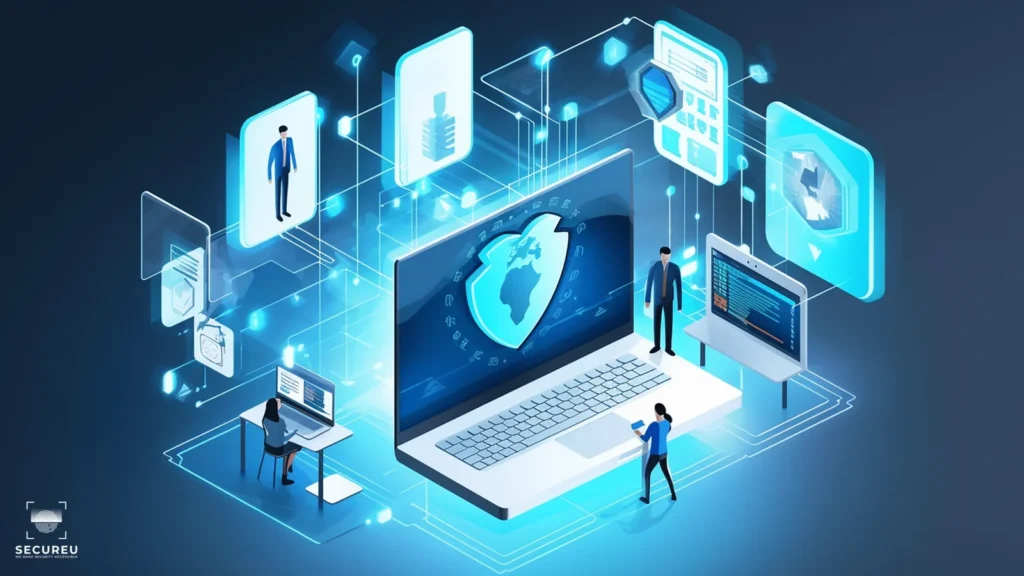The Importance of Cybersecurity in Safeguarding Our Critical Infrastructure
Introduction In our increasingly connected world, critical infrastructure is like the beating heart that keeps our society running smoothly. From the power grids that light up our homes to the transportation systems that get us from place to place, these crucial systems are the backbone of modern life. Data Security Companies in Kochi, However, just like any vital organ, they need protection, and that’s where cybersecurity comes in. In this article, we will delve into what critical infrastructure is and why it requires robust cybersecurity measures. What Is Critical Infrastructure? Critical infrastructure refers to the essential systems and assets that our society heavily relies upon for its functionality and well-being. These systems can be categorised into various sectors, including: Why Does Critical Infrastructure Need Protection? Critical infrastructure is the lifeblood of any nation, and its importance cannot be overstated. Here’s why safeguarding it is paramount: How Cyber Security Safeguards Critical Infrastructure To counter these threats, cybersecurity is crucial. It involves implementing a set of technologies, processes, and practices designed to protect critical infrastructure from cyberattacks and unauthorized access. Here are some key ways in which cybersecurity plays a vital role: The Evolving Threat Landscape As technology advances, so do the capabilities of cybercriminals and malicious actors. It’s important to understand that the threat landscape is constantly evolving. Hackers employ sophisticated techniques and tools to target critical infrastructure, making it crucial for cybersecurity measures to adapt and improve continuously. The Role of Government in Critical Infrastructure Protection Recognizing the vital importance of critical infrastructure, many governments around the world have established regulations and standards to ensure its protection. In the United States, for instance, the Department of Homeland Security (DHS) has designated 16 critical infrastructure sectors and developed the National Infrastructure Protection Plan (NIPP) to guide public and private sector efforts in securing these sectors. Government agencies work in collaboration with private organisations to enhance cybersecurity within critical infrastructure. Public-private partnerships, information sharing, and cybersecurity exercises are some of the ways in which government and industry collaborate to strengthen defences against cyber threats. Conclusion In conclusion, critical infrastructure is the backbone of our society, and protecting it is a top priority. The role of cybersecurity in safeguarding critical infrastructure cannot be understated. It helps defend against cyber threats that can have severe consequences for national security, public safety, the economy, and human welfare. By implementing robust cybersecurity measures, regularly updating them, and providing ongoing employee training, we can ensure that our essential systems continue to operate safely and efficiently in our interconnected world. As the threat landscape evolves, so must our commitment to cybersecurity to protect the foundations of modern life. Reach out to us today & let’s talk about how we can help you! Website: https://secureu.in | E-mail: contact-us@secureu.in | Contact us: Instagram, TwitterYoutube & LinkedIn
The Importance of Cybersecurity in Safeguarding Our Critical Infrastructure Read More »
Introduction In our increasingly connected world, critical infrastructure is like the beating heart that keeps our society running smoothly. From the power grids that light up our homes to the transportation systems that get us from place to place, these crucial systems are the backbone of modern life. Data Security Companies in Kochi, However, just like any vital organ, they need protection, and that’s where cybersecurity comes in. In this article, we will delve into what critical infrastructure is and why it requires robust cybersecurity measures. What Is Critical Infrastructure? Critical infrastructure refers to the essential systems and assets that our society heavily relies upon for its functionality and well-being. These systems can be categorised into various sectors, including: Why Does Critical Infrastructure Need Protection? Critical infrastructure is the lifeblood of any nation, and its importance cannot be overstated. Here’s why safeguarding it is paramount: How Cyber Security Safeguards Critical Infrastructure To counter these threats, cybersecurity is crucial. It involves implementing a set of technologies, processes, and practices designed to protect critical infrastructure from cyberattacks and unauthorized access. Here are some key ways in which cybersecurity plays a vital role: The Evolving Threat Landscape As technology advances, so do the capabilities of cybercriminals and malicious actors. It’s important to understand that the threat landscape is constantly evolving. Hackers employ sophisticated techniques and tools to target critical infrastructure, making it crucial for cybersecurity measures to adapt and improve continuously. The Role of Government in Critical Infrastructure Protection Recognizing the vital importance of critical infrastructure, many governments around the world have established regulations and standards to ensure its protection. In the United States, for instance, the Department of Homeland Security (DHS) has designated 16 critical infrastructure sectors and developed the National Infrastructure Protection Plan (NIPP) to guide public and private sector efforts in securing these sectors. Government agencies work in collaboration with private organisations to enhance cybersecurity within critical infrastructure. Public-private partnerships, information sharing, and cybersecurity exercises are some of the ways in which government and industry collaborate to strengthen defences against cyber threats. Conclusion In conclusion, critical infrastructure is the backbone of our society, and protecting it is a top priority. The role of cybersecurity in safeguarding critical infrastructure cannot be understated. It helps defend against cyber threats that can have severe consequences for national security, public safety, the economy, and human welfare. By implementing robust cybersecurity measures, regularly updating them, and providing ongoing employee training, we can ensure that our essential systems continue to operate safely and efficiently in our interconnected world. As the threat landscape evolves, so must our commitment to cybersecurity to protect the foundations of modern life. Reach out to us today & let’s talk about how we can help you! Website: https://secureu.in | E-mail: contact-us@secureu.in | Contact us: Instagram, TwitterYoutube & LinkedIn


